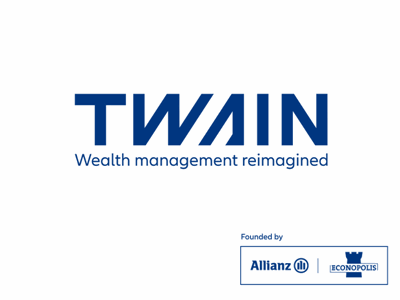Notwithstanding fairly stable to declining prices of food commodities, the stocks of the agriculture producers are breaking out. In line with a stock market that currently prefers 'atoms over bits', we recently see a strong increase in agriculture-related shares. While commodity prices usually lead producer stocks, this time there seems to be more going on under the hood - let’ ...
#MacroFriday: US Consumer Paradox Low Confidence, Resilient Spending
The Conference Board’s consumer confidence indicator fell to its lowest level since 2014 in January. Meanwhile, consumer spending has been quite resilient. This paradox reflects another K-shape in the US economy. US consumer confidence has deteriorated markedly in recent months, with the Conference Board’s measure sliding to its weakest level in more than 12 years. This reflec ...
Five signs that China is getting green, fast
Last week, the question of how green China’s economy really is was raised on the Belgian television programme De Afspraak. Economist Koen Schoors argued that China is becoming greener at a rapid pace, pointing to the scale of its renewable expansion. Other guests were more sceptical, emphasising the country’s continued reliance on coal and its status as the world’s largest emit ...
Is AI Wrapping Software or Vice Versa?
AI wrappers are going to capture the majority of the value created… … just like the cloud wrappers did in 2010s. Source: Jefferies Introduction Everything wraps something (except for companies selling sand). Netflix, after switching from renting out DVDs to a streaming service, wrapped the content it licensed from Disney, Comcast, and others. Airbnb wraps accommodat ...
#MacroFriday: The EU's Art of the Deal
The EU’s trade commissioners had a busy start to the year as the Union closed deals with India and the Mercosur countries. This reflects the European strategy of diversifying trade flows in a changing global landscape. European Commission President Ursula von der Leyen described the trade deal with India as the “mother of all deals”. The agreement eliminates or reduces trade t ...
Reboot measures for a competitive industry towards 2030
Industrial competitiveness has moved to the top of the European policy agenda. Next week, European leaders will convene at an informal summit in Alden Biesen to discuss how Europe’s industrial base can be safeguarded. Earlier this week, the Flemish Government announced that it will allocate €2 billion over the next ten years to support industry. This is an important step, but i ...
Revisiting Boston: Our Boston Dynamics Experience
In October last year, the Econopolis team had the chance to visit Boston Dynamics at their headquarters in Boston, Massachusetts. After a fascinating tour through the company’s history, we even got to interact with Spot, their famous dog-like robot built to walk through real-world environments. Naturally, we couldn’t resist asking about their legendary humanoid, Atlas. But when ...
#MacroFriday: De-Dollarization: US Dollar Dominance Fades Slowly
De-dollarization is less new and less outspoken than headlines make you believe On Wednesday, our founder and Chief Economist Geert Noels appeared on Terzake to discuss the continued decline of the US dollar and the concept of De-dollarization. This means a structural shift in the reserve currency status of the US dollar and its fading dominance in global transactions and t ...

Announcement | Twain: Wealth Management Reimagined
Econopolis and Allianz have found common ground in their shared ambition to take a different approach to traditional wealth management in Belgium. They are therefore jointly launching Twain, an innovative wealth management solution for high net worth individuals with assets of €200,000 or more. To make this possible, Allianz Benelux is joining Econodigital, the joint venture in which Twain is being developed, as a 50% partner.
Beyond the North Sea Summit: A Roadmap to Affordable Energy for Europe
At the North Sea Summit in Hamburg, European leaders sent a strong and necessary signal. By announcing a €1 trillion investment trajectory in offshore wind, grids and related infrastructure across the North Sea, Europe is betting on scale, cooperation and predictability to deliver clean and affordable energy. This matters. The North Sea Summit is not just about climate ambitio ...